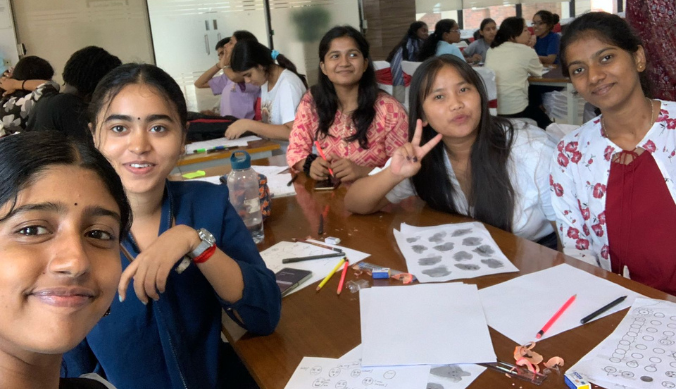How do Agricultural Markets Work in Practice?
Professor Mekhala Krishnamurthy’s research explores the complexities of India's agricultural markets, examining their diverse evolution across states and advocating for policies that align decentralised procurement with dynamic market development and food security.
In India and around the world, agricultural markets are politically sensitive and historically significant. These markets raise essential questions about how societies manage the resources and relationships involved in producing, exchanging, processing, distributing, and consuming food and other agricultural products. However, the actual structure and dynamics of these markets are often unclear, which can have serious consequences for development policies and societal well-being.
Over the last decade, Mekhala Krishnamurthy, Associate Professor of Sociology and Anthropology at Ashoka University, has conducted extensive fieldwork to illuminate the diversity, complexity, and dynamism of India’s agricultural markets. Her research, covering multiple sites in Bihar, Odisha, Karnataka, Madhya Pradesh, and Punjab, explains how and why agricultural markets have evolved differently across Indian states, diverse agro-ecological regions, and a variety of crops and commodity systems. To achieve this, she has worked collaboratively, developing interdisciplinary methods for large-scale, comparative field-based research that draws on anthropology, sociology, history, economics, and political science.
Between 2018 and 2020, Professor Krishnamurthy was the Co-Principal Investigator of a major grant-funded research study. This study involved training and leading teams of young field researchers to gather and analyse complex ethnographic and survey data across three states and seven districts. The findings were published in an open-access report for the public, policymakers, and academia. By closely examining market sites, exchanges, and systems across multiple commodities, the report advocates for context-relevant policies, regulations, and public investment in agricultural markets.
As a result of this long-term research commitment, Prof. Krishnamurthy was invited to engage widely and deeply in public deliberation and policy discussions on the three union Farms Laws and the subsequent historic farmers’ protest. She provided insights in dialogues with senior policymakers and civil society leaders as to how agricultural markets work on the
ground, the varying experiences of different states and the gaps in regulatory design, purpose, and implementation. Her contributions highlighted the disconnect between the farm laws and field realities, as well as the political economy of reform and resistance in federal India. More recently, amid renewed demands and public debate over a legal guarantee of the Minimum Support Price (MSP) for a broader range of crops, Professor Krishnamurthy has drawn on her field-based research on decentralised procurement and distribution to highlight a critical lesson.
MSP procurement need not be seen as opposing the functioning of dynamic agricultural markets. Instead, there is an opportunity to redesign and implement a more calibrated and cooperative MSP policy. Such a policy can facilitate market development while acting as a safeguard and stabilisation mechanism in volatile markets. This approach supports producers with assured markets and production support, improves diets, and better supports the transition from food security to nutritional security for Indian consumers and citizens.
Edited by Dr Yukti Arora (Academic Communications, RDO, Ashoka University)
Study at Ashoka













